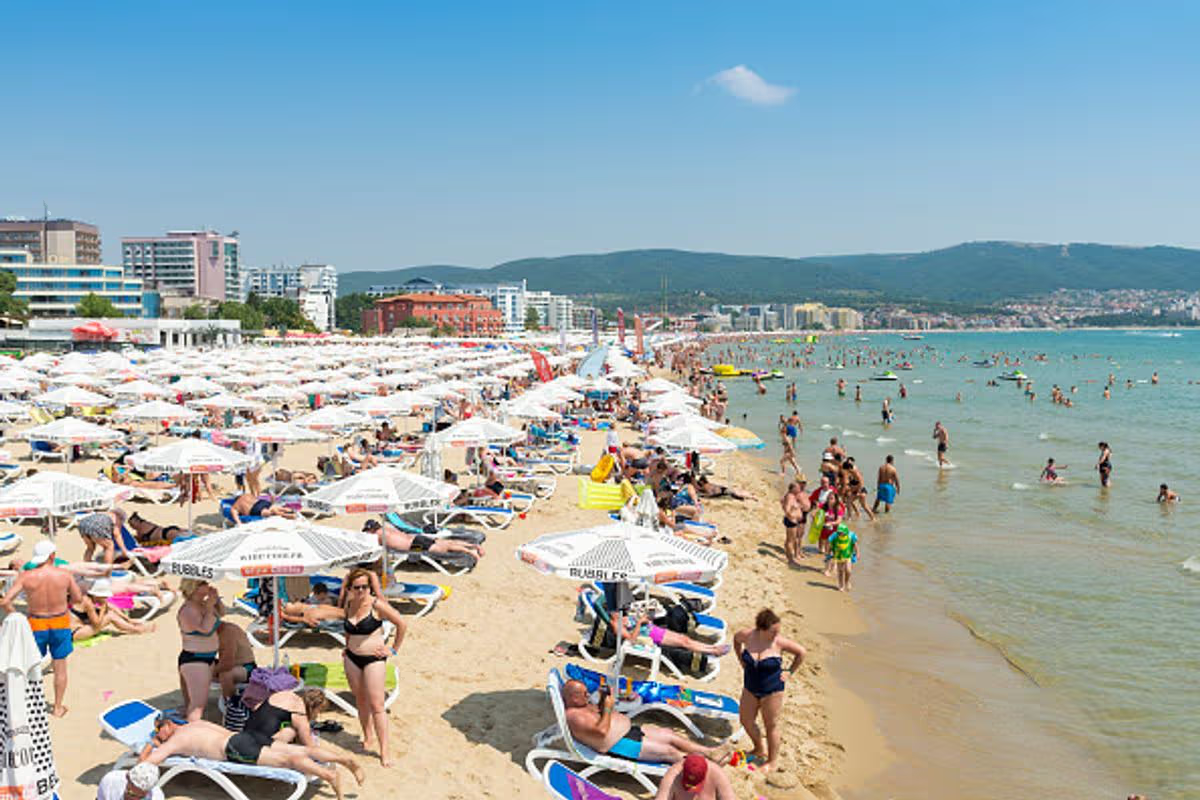If you’re looking for alternatives to Benidorm, there’s a destination that’s becoming increasingly popular with Brits who are seeking sunshine, inexpensive pints, and lively nightlife
Benidorm is the perfect choice of destination if you like a lively atmosphere, plenty of beach space, and clubs within walking distance of your hotel. However, in recent years, many tourists have been looking for alternatives to the Spanish town, and if you’re bored of Beni, there’s another fun destination about 3.5 hours from the UK.
Sunny Beach in Bulgaria has many similarities to Benidorm. Both resorts were developed in the 1960s with the package holiday boom, and Sunny Beach’s promenade with its high rise hotels could easily be mistaken for Benidorm’s Levante Beach area.
However, with some tourists complaining about Benidorm prices in recent years, Sunny Beach offers a cheaper alternative. YouTuber Travel with Col made a video of some of Sunny Beach’s prices in June of last year and showed deals such as two cocktails for £4.60, and beers for £1.50.
As the name implies, Sunny Beach sits on a long stretch of sandy coast. The Blue Flag beach is about six miles long, and there are quieter spots to be found for those who want to relax or enjoy more of a family-friendly atmosphere. The sand gently slopes into the Black Sea, and waters are shallow, clear, and calm, ideal for swimming or snorkelling.
Central Beach is at the heart of the action, and along the coast is a huge number of beach bars, nightclubs, and large hotels. By day, you’ll see people lounging on sunbeds with cocktails and enjoying DJ sets, while at night, the clubs are packed with people dancing until dawn. Many clubs open until five or six am, just as the sun comes up, but some spots such as Cacao Beach open 24-hours a day, so the party never stops.
Inland, the town is a tourist haven, full of shops selling beachwear, a market with lots of colourful stalls, and inexpensive fast food joints. You’ll find restaurants serving cuisine from around the world, as well as a few Bulgarian places where you can try Balkan dishes. Sunny Beach Amusement Park is popular with families, offering fairground rides and rollercoasters, while the Action Aquapark has pools, slides, and a lazy river.
Most Brits arrive via Burgas Airport, which has seasonal connections with airlines including easyJet, Jet2, Ryanair, TUI, and Wizz Air. It’s about half an hour from Sunny Beach, and has good public transport connections.
READ MORE: Ibiza and Majorca could end up restricting tourist numbers under radical plansREAD MORE: Tourists flock to UK’s ‘lost city’ to see hidden gem – only to find it’s a toilet
It’s worth taking a day trip to Burgas to explore this historic Bulgarian city. Attractions include The Sea Garden, famous for its pier which looks a lot like something you’d see at the British seaside. Dino Park is an amusement park with animatronic dinosaurs, allowing you to feel like you’ve stepped back in time, and there’s the vast Mall Galleria where you’ll find lots of popular European chains.
Finish your day with a boat trip to St. Anastasia Island. Dating back to medieval times, this tiny 2.5 acre island has a monastery, museum, and historic lighthouse to explore.
Have a story you want to share? Email us at webtravel@reachplc.com

